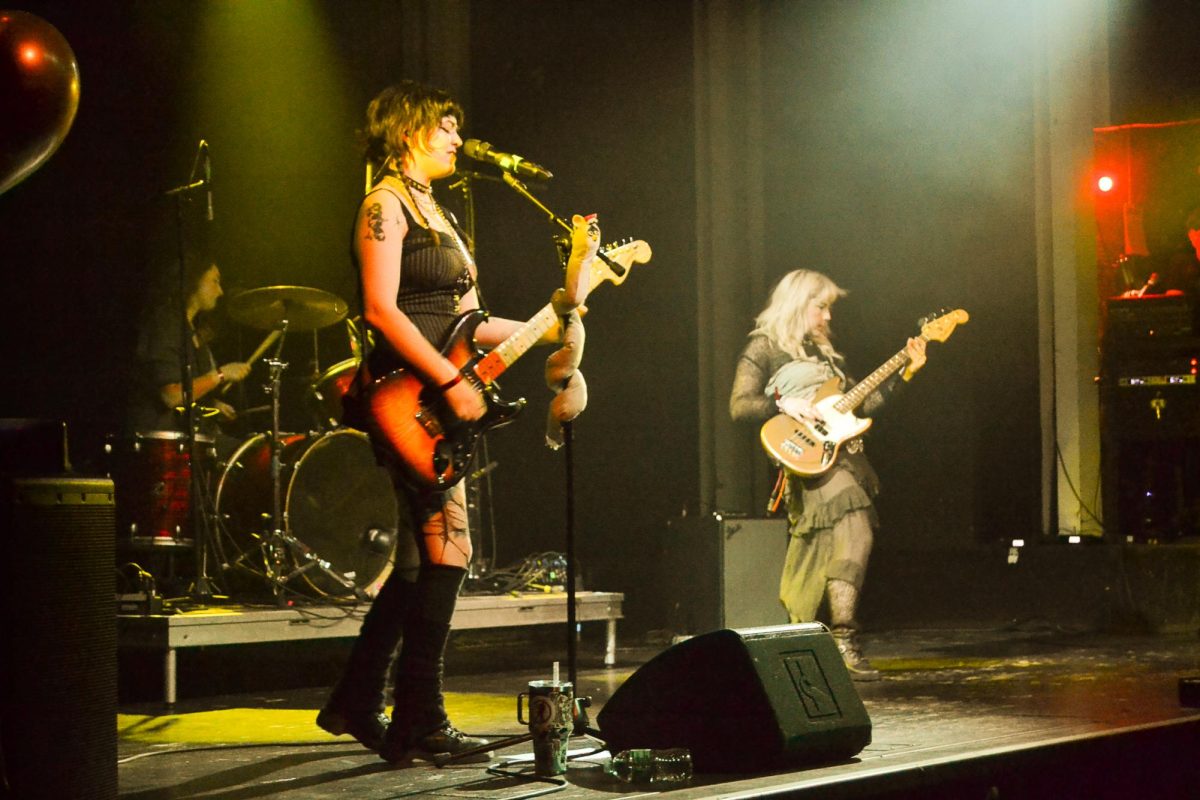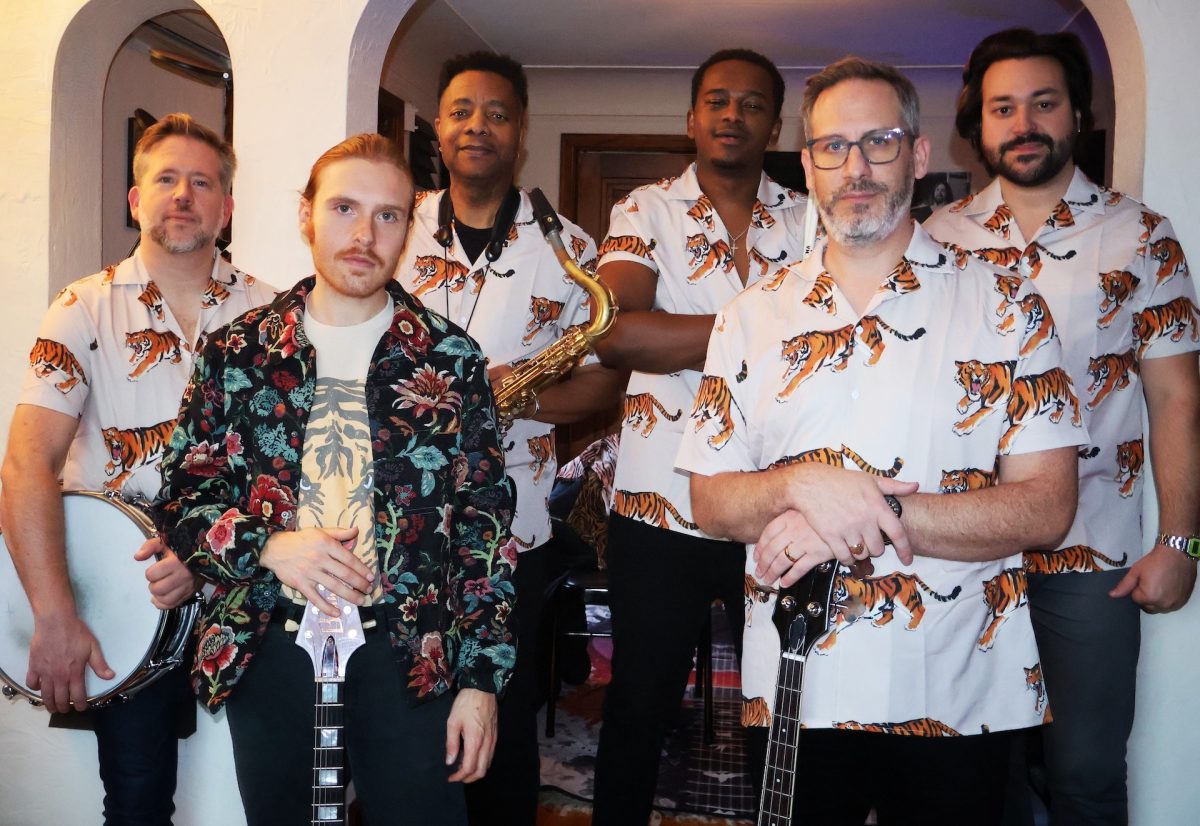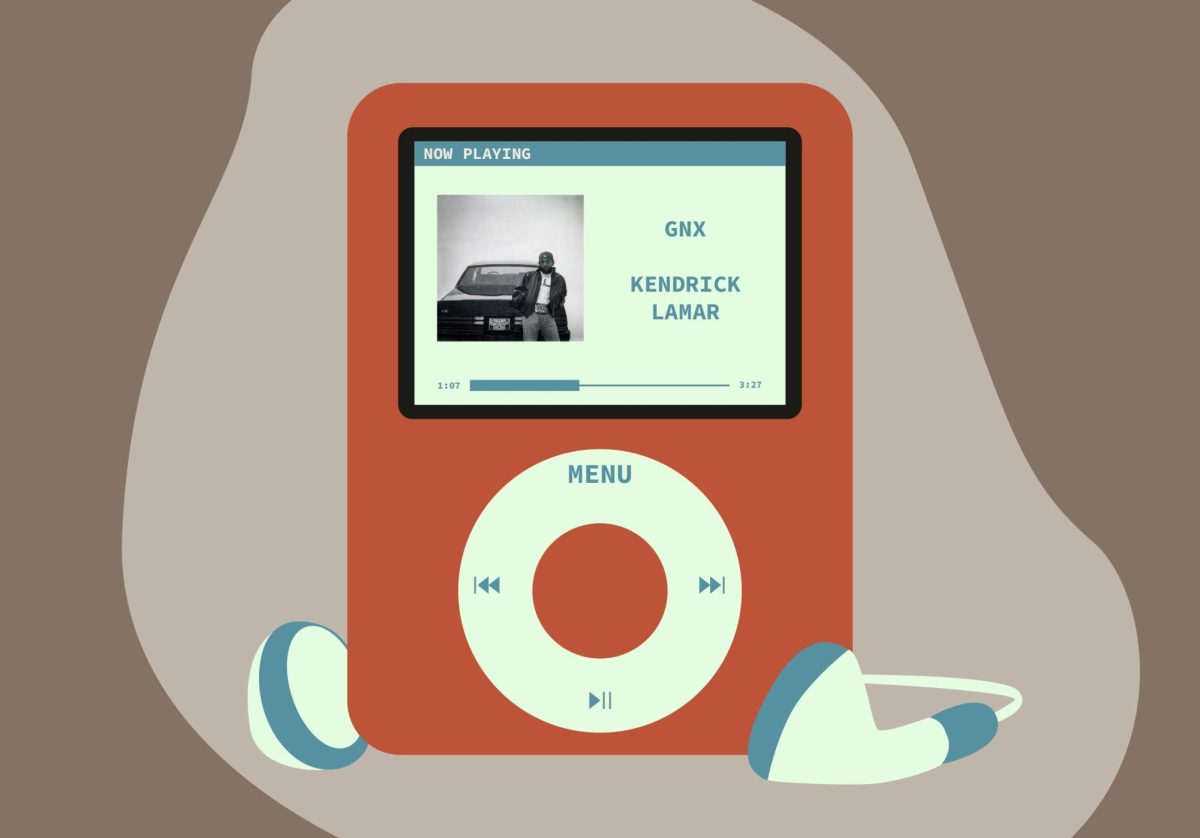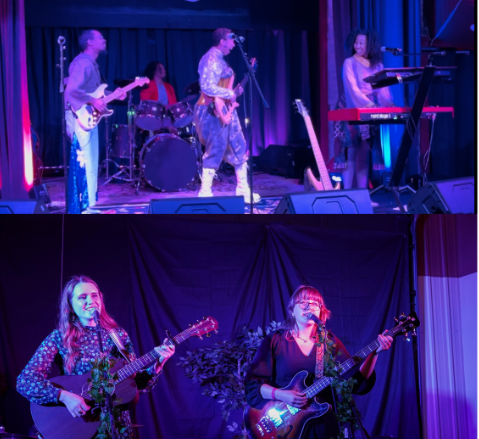WHAT: Hud WHEN: 8 p.m., Thursday, May 7 WHERE: PalmerâÄôs Bar TICKETS: $5 suggested cover ItâÄôs hard not to respect a musician who possesses the motivation to play in three bands simultaneously and still has time to gig solo. Bluesman extraordinaire Javier Matos does just that. Mix in the fact that he plays multiple shows a week, including a residency at PalmerâÄôs Bar, and youâÄôve got one busy bluesman. Matos, a native of California, moved to the Twin Cities in 1990 to study theology. After dropping out in 1992, Matos bought a Robert Johnson CD box set and tablature and locked himself in a room until heâÄôd mastered it. In âÄô93 he enlisted in the Army and then bounced around from band to band and city to city before finally landing back in Minneapolis around 2006. From there, Matos wasted no time in forming a new incarnation of his former San Francisco band Hud, and heâÄôs been here since. Today, Hud âÄî as well as his other two groups, Doghouse Lords and Luther The Devil âÄî are all still going strong. What do the bands have in common? They make hauntingly shaking dirty blues, with gritty guitars and wailing vocals. On par with Twin Cities rootsy mainstays like Mike Gunther and Charlie Parr, Javier Matos and his bands carry an old-time brilliance on stage. In a time when blues is defined by a boring tendency for slick or overzealous distortion, Matos isnâÄôt afraid to keep it real and make it bleed. A&E caught up with Javier to talk to him about, obviously, the blues. What kind of music did you listen to growing up? The first music I got hooked into was early blues music. My dad had some records and it was the deepest thing I had ever felt; that feeling never left me. Every time I listen to real blues music I have that circus of emotion feeling in my stomach: happiness, a little bit of sadness and excitement. Do you think that blues is primarily a black musical form? Or do you think it is an art form and therefore transcends race? IâÄôm glad that you asked that. It is primarily an African American invention. Once itâÄôs invented, though, itâÄôs free domain; its free access is for the world and anyone can access it. If youâÄôre saying I canâÄôt do it âÄôcause I am a white guy, then how can you tell a black cellist that he canâÄôt play Mozart? Do you identify more with Fat Possum Records and the new brand of dirty blues, or older blues? I do not identify with Fat Possum because I am a country blues player. By myself, I was playing this stuff before all that came around. That doesnâÄôt mean I donâÄôt enjoy that, it is an evolution, and IâÄôm not saying that IâÄôm not experimenting with it too. I just identify more with people like Charlie Patton, Mississippi John Hurt, Blind Willie Johnson, Son House and Robert Johnson, of course. I play a lot of Robert Johnson stuff. That stuff was heavy enough for me that I never felt like I had to get a bunch of distortion pedals and blast stuff out. I could assume youâÄôre more akin to say someone like Elmore James or HowlinâÄô Wolf over the B.B. King brand of smooth? Yeah, you nailed it there, especially HowlinâÄô Wolf. I like the dirty over the slick stuff. I never really was a Josh White guy. Do you miss California? I do. I mean, I miss the people out there. ThereâÄôs a lot of talent in Minneapolis, though. When I left California I was happy we were playing here because itâÄôs a hub musically.
The Blues are Still Blue
Javier Matos and his bands put the blues back into the blues.
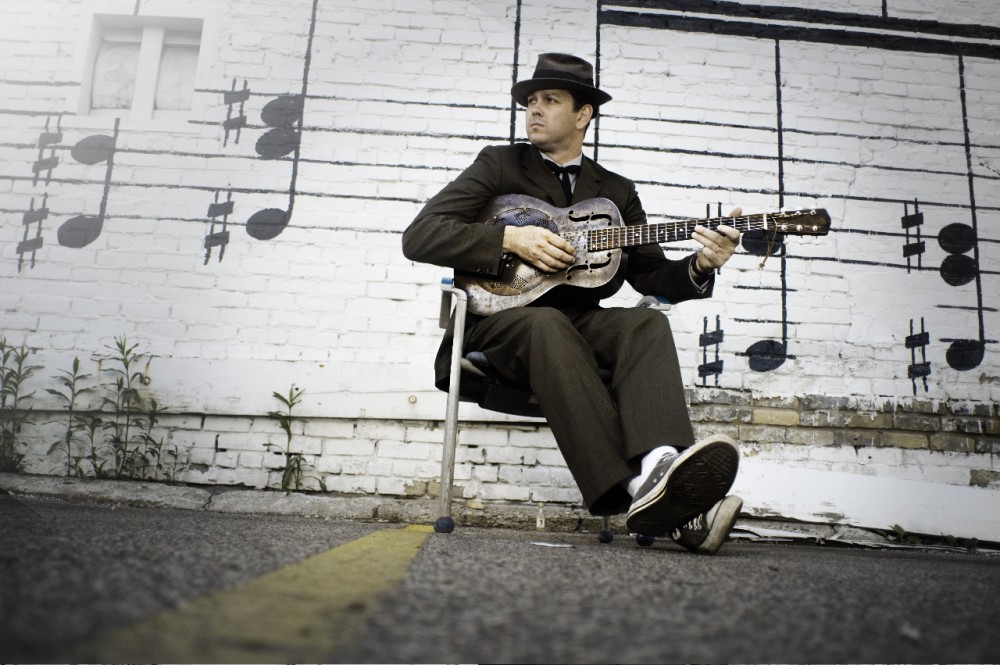
Image by Chris Roberts
Javier circa 1939, save for the Chuck Taylors
Published May 6, 2009
0
More to Discover


